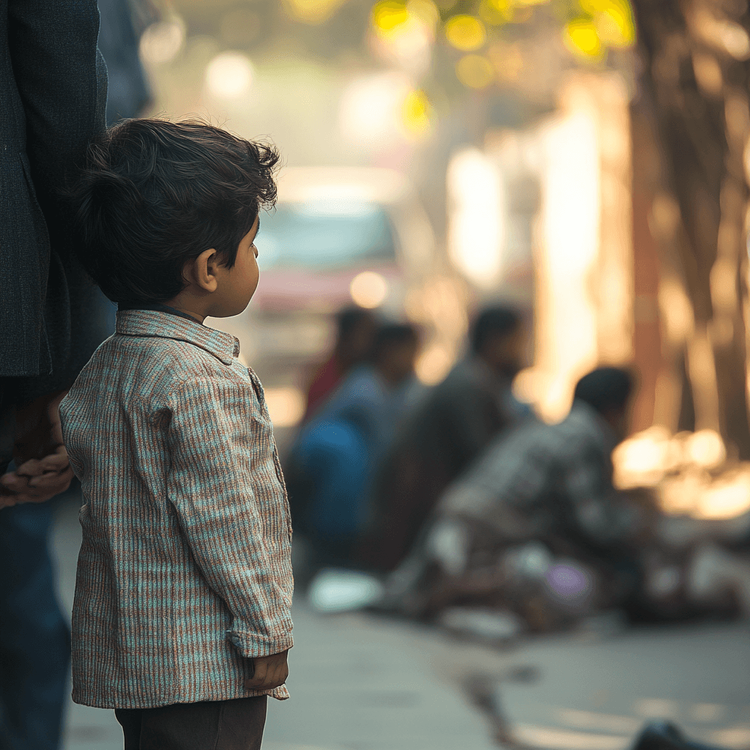Essay: Why The Government Should Provide Shelter for the Homeless

Table of Contents
- Who Are Homeless People
- Key Reasons Behind the Rise in Homelessness
- The Long-Term Consequences of Homelessness
- Integrating Homeless Support into Broader Policy
- A Vision for the Future: Housing as a Human Right
- What Can the Government Do?
- The Role of Education in Shaping Empathy
- Real-Life Examples of Change
- Youth Voices Matter
- Conclusion
- FAQs:
With the rising number of individuals living on the streets, the question has never been more urgent: Should the government provide shelter for the homeless? The answer is a resounding yes. In this extended blog, we explore who the homeless are, what causes homelessness, the societal consequences of ignoring this issue, and the most effective solutions, including how the government can and should take the lead.
Who Are Homeless People
Homeless individuals are those who lack permanent, safe, and adequate housing. But homelessness is more than the absence of a physical shelter. It often includes a lack of access to clean water, nutritious food, healthcare, employment opportunities, and emotional or psychological support.
They may sleep in public places, abandoned buildings, cars, or shelters, and many face risks of illness, violence, and long-term trauma. Families, veterans, children, and the elderly can all fall victim to this crisis. It's not just a poverty issue; it’s a human dignity issue.
Key Reasons Behind the Rise in Homelessness
1. Rapid Urbanization
Urban areas attract people from rural regions in search of jobs and better infrastructure. However, high rents and low supply of affordable housing result in many individuals getting pushed to the fringes.
2. Deepening Poverty and Job Loss
Job loss due to recessions, automation, or business closures is one of the leading causes of homelessness. With no income, families cannot keep up with rent or mortgage payments.
3. Mental Health and Substance Abuse
A significant portion of the homeless population suffers from untreated mental health conditions or substance abuse. Without public support or rehabilitation programs, these individuals end up on the streets.
4. Natural Disasters and Climate Change
Floods, earthquakes, and extreme weather events displace thousands each year. Without government-led recovery programs, many affected citizens have no option but to live in temporary shelters or on the streets.
5. Lack of Social Safety Nets
Countries without proper healthcare, unemployment benefits, or housing subsidies increase the risk of individuals becoming homeless after any personal crisis, such as a job loss, divorce, or medical emergency.
The Long-Term Consequences of Homelessness
Ignoring homelessness has long-term societal and economic costs:
Public Health Crisis: Homeless individuals are at higher risk of communicable diseases, and their lack of access to hygiene or healthcare services can lead to broader public health threats.
Increased Crime Rates: Survival needs can push individuals toward theft, drug use, or gang involvement.
Lost Economic Potential: Every homeless person not only suffers personally but also represents lost productivity and labor for the economy.
Educational Gaps: Children in homeless families often miss out on quality education, trapping them in generational poverty.
Integrating Homeless Support into Broader Policy
Combating homelessness requires cross-sector collaboration. Policies should go beyond housing alone and address the interconnected challenges that lead to homelessness.
Healthcare Access
Homeless individuals often suffer from untreated medical conditions, both physical and mental. Mobile clinics, free primary care, and access to addiction support services should be part of the public health response.
Education and Childcare
For homeless families, education can be a lifeline. Governments must ensure access to schooling for homeless children, provide free meals, transportation, and learning materials. Childcare support also enables parents to seek work or attend training.
Employment-Linked Housing Programs
Pair housing with skill-building and job placements. For example, city governments can tie public housing benefits with vocational training, allowing individuals to transition into self-sufficiency gradually.
Rehabilitation for the Previously Incarcerated
Many formerly incarcerated individuals struggle with homelessness. Reentry programs should include shelter, employment counseling, and psychological support to break the cycle of crime and poverty.
A Vision for the Future: Housing as a Human Right
Countries like Finland and Norway have shown that homelessness can be significantly reduced when governments treat housing as a fundamental right, not a privilege. India, the U.S., and other developing nations can learn from these models.
Imagine a future where every citizen, regardless of background, has access to shelter, food, health, and education. A society that values people over property. A government that serves every citizen with dignity and compassion.

What Can the Government Do?
Here are effective and scalable solutions governments around the world should consider implementing:
1. Build Affordable and Emergency Housing
Construct government-funded shelters and long-term affordable housing. Convert unused government buildings and vacant homes into safe spaces for the homeless.
"The best way to combat homelessness is to provide homes - not temporary fixes, but permanent, affordable shelter that ensures stability."
2. Strengthen Coordination with NGOs
Nonprofits and religious groups often run soup kitchens and shelters, but lack resources. Governments should form public-private partnerships to provide land, funding, and manpower to these organizations.
3. Introduce National Housing Guarantee Schemes
Inspired by schemes like food rationing or employment guarantees, housing guarantees ensure that no individual will go without shelter, regardless of income.
4. Support Rehabilitation Programs
Invest in mental health clinics, vocational training centers, and rehabilitation programs. This can prevent those suffering from trauma or addiction from relapsing into homelessness.
5. Introduce Emergency Housing Vouchers
Subsidize rent for low-income families during crises (e.g., medical emergencies, job loss). It’s cheaper for the state to pay partial rent than to deal with the costs of homelessness later.
6. Digital Database for the Homeless
Create a national database of homeless citizens to better track, support, and reintegrate them into society. Biometric IDs can help link them to jobs, health, and housing services.

The Role of Education in Shaping Empathy
Schools can play a powerful role in sensitizing children toward the homeless. Creative writing activities, debates, or campaigns on this topic foster:
Empathy
Critical thinking
Social awareness
Communication skills
At PlanetSpark, we train students to write persuasively about social causes, helping them develop both language skills and emotional intelligence.
Real-Life Examples of Change
Several cities have already taken innovative steps:
Finland – The “Housing First” Model
Instead of requiring homeless people to be “clean” before getting housing, Finland gives homes first and then offers support. As a result, homelessness in Finland is almost eliminated.
Delhi, India – Rain Basera Night Shelters
These government-supported shelters provide beds, bathrooms, and food for free or at low cost. More shelters are being added as demand grows.
Youth Voices Matter
Encourage students to voice their opinions through speech writing, creative essays, and social storytelling. These not only build writing skills but also encourage civic awareness.
“Shelter isn’t a privilege. It’s a right.” Sample line from a PlanetSpark student’s essay on homelessness.
Conclusion
Homelessness is not just a failure of housing - it is a failure of society, empathy, and policy. The government has to protect its citizens and provide shelter, opportunity, and dignity to those in need.
By combining infrastructure, public support, employment, and healthcare, governments can reduce homelessness significantly. And by encouraging our children to think, write, and act compassionately, we build a future where no one is left without a roof.
Together, we can write a new story - one where every citizen has a place to call home.
FAQs:
1. Why should the government provide shelter for the homeless?
Ans. Because shelter is a basic human need. Governments are responsible for safeguarding the well-being and dignity of every citizen.
2. What are some low-cost ways to help the homeless?
Ans. Converting unused government buildings, offering temporary housing vouchers, and partnering with NGOs can help without excessive spending.
3. What role do schools and children play in solving homelessness?
Ans. Children can create awareness, organize donation drives, and learn about homelessness through creative writing and storytelling.
4. Can writing skills help spread awareness about social issues?
Ans. Yes! Programs like PlanetSpark’s Creative Writing course help students articulate and advocate for causes they believe in, developing strong voices for the future.

Hi There, want to try these
tips for your child with
LIVE with our expert coach?
Let's check your child's
English fluency
